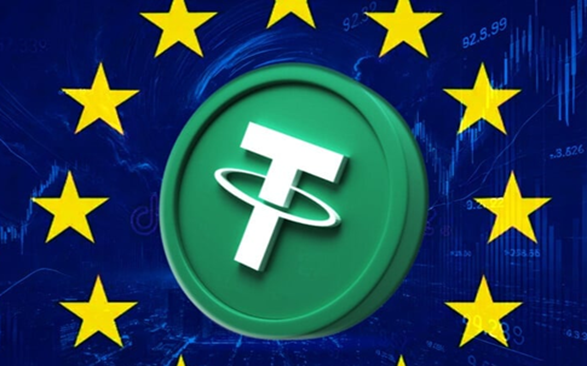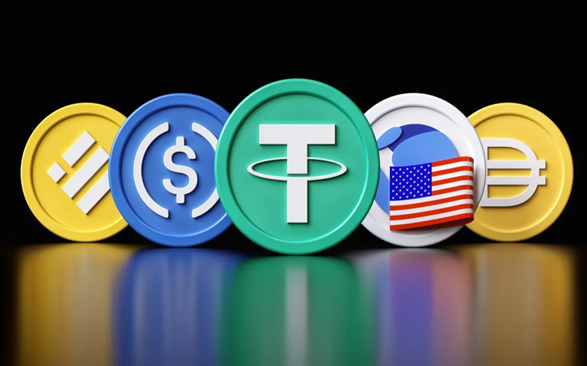Before the Central Bank of Nigeria (CBN)’s circular of 5 February 2021 which was an order prohibiting banks and other financial institutions from facilitating cryptocurrency-related transactions, users were able to complete crypto transactions with their Nigerian bank accounts. Users could transfer funds to and from exchanges such as Binance, Kucoin, Luno, and several others. But immediately after the prohibition by the CBN, users could no longer do so. For users who had their accounts frozen, they were unable to access the funds in their bank accounts. And for those who had their bank accounts closed mandatorily, they were denied further access to banking services—at least as far as the affected bank accounts were concerned.
CBN cryptocurrency circular misconceived as an outright ban on cryptocurrency in Nigeria
The CBN circular to banks and other financial institutions was largely misconceived as a cryptocurrency ban in Nigeria—a misconception demystified by Senator Ihenyen in a recent article. The CBN circular was followed by a series of concerns, legal and regulatory issues. First was whether the CBN had the power to ban cryptocurrency in Nigeria, being a regulatory agency and not a legislator. A lawsuit ensued in 2021 in which this issue was raised. The Federal High Court in Abuja had ruled that the action of the CBN was ultra vires, null and void since it was based on a mere circular and not written law. The Court ordered the two commercial banks involved to reverse its actions, including unfreezing the account of the plaintiff/applicant, RiseVest Technologies. Concerning the problematic circular however, the CBN has not withdrawn it till date.
Did the CBN cryptocurrency circular render cryptocurrency illegal in Nigeria?
The second issue was whether cryptocurrency became illegal in Nigeria, and the manner that law enforcement agencies welcomed the CBN order: the police, for example, indiscriminately and constantly harassed young Nigerians, reportedly, suspected to be crypto traders, confiscating their phones and unlawfully searching and arresting those that had crypto-related apps on their phones. Although the CBN order was issued to commercial banks and not security agents to enforce its order, the latter was more serious in enforcing it.
What is the future of cryptocurrency in Nigeria?
Thirdly, there was industry-wide speculation and several dialogues on the future of cryptocurrency in Nigeria. Was it really the end for the industry? Contrary to the speculation that the industry had been crippled, there was a quick turn to peer to peer (P2P) transactions. And contrary to people’s fears that there was no longer a future for crypto in Nigeria, there was a massive growth in crypto adoption in the country, ranking it the highest in Africa in 2021 and sixth globally, although dropping to eleventh in 2022 according to CoinMarketCap.
New developments in the industry since the CBN order
The CBN order notwithstanding, the industry witnessed other positive developments in the following year(s):
First, in May 2022, the Securities and Exchange Commission (SEC) released the “New Rules on Issuance, Offering Platforms and Custody of Digital Assets” (SEC Rules) covering “Issuance of Digital Assets,” “Digital Assets Offering Platforms,” “Digital Asset Custodians,” “Rules on Virtual Assets Service Providers,” and “Digital Assets Exchange.”
Second, the Finance Act, signed into law May 2023, introduced a 10% capital gains tax on profits realized from the disposal of digital assets, including cryptocurrencies. Also in May 2023, the government in consultation with the private sector launched the National Blockchain Policy to “serve as a road map for Nigeria’s adoption of Blockchain Technology in the future.”
Third, in October 2021, the CBN—surprisingly and ironically—launched a central bank digital currency (CBDC), the e-Naira, which although backed by blockchain technology, was not a cryptocurrency.
All these developments cleared the doubts about the legality of cryptocurrency in Nigeria as the CBN order had caused people to believe.
And finally, the long-awaited lifting of the restrictions on individuals’ and companies’ bank accounts, which was long overdue.
In a circular dated 25 July 2023, signed by the Director of Banking Supervision, A.M. Barau, the CBN directed commercial banks to vacate a post-no-debit restriction (the “ban”) placed on the bank accounts of persons who had engaged in cryptocurrency trading in 2021. It read, “You are hereby directed to vacate the Post-No-Debit restriction placed on the accounts of the under-listed bank customers at our instance.”
The circular also directed the banks to inform the concerned customers about this development. The affected companies included Bamboo Systems Technology Limited, Rise Vest Technologies Limited, AbokiFX Limited, and fifteen others, whose businesses covered a wide range of services, such as foreign exchange, construction, investment, money laundering, and property.
Events leading to the order
In 2021, the CBN, then led by the now-suspended Governor Godwin Emefiele, accused crypto and forex traders of using the Nigerian forex market to purchase foreign bonds/shares in contravention of the Bank’s directive issued in 2015. The CBN alleged that as a consequence, the traders were making the Naira weaker to the United States Dollars. The decision was also based on concerns regarding the risks associated with cryptocurrencies such as money laundering, financing of terrorism, among other criminal activities. The solution, therefore, was to block the accounts of users and freeze their funds. In an affidavit, the CBN claimed that the affected trading platforms, such as AbokiFX among others, were violating Nigeria’s trading laws including dealing in cryptocurrency as against the CBN policy.
Many young Nigerians, however, linked the CBN’s action to the #EndSARS protests in October 2020, as the organizers received funds in crypto after their bank accounts were frozen by an order of the CBN.
Later in September 2021, following an accusation by Governor Godwin Emefiele, the CBN forced AbokiFX to suspend operations for manipulating forex rates, despite the platform’s defense that it only publishes the information it gets from BDCs (Bureau de Change) and parallel rate dealers and does not trade nor create the rates, and that it even lacks the power to manipulate rates.
Following the order, stakeholders shared their opinions on the need for the CBN to reconsider its decision:
Godfrey Elimian in a recent publication argued, “[i]f the CBN were to reconsider its ban on cryptocurrencies, it might give people and companies a way to diversify their financial holdings and lessen their reliance on the US dollar…if people and companies have it as an option for cross-border transactions or as a store of value.
“…by permitting cryptocurrency transfers that have gone via authorised exchanges and undergone KYC to enter Nigerian banks …the apex bank continues to oversee and address the issues that prompted the initial prohibition, such as money laundering and the financing of terrorism,” Elimian suggested.
It is ironic that one of the reasons for the CBN “ban” was to strengthen the Naira against the US Dollar: the value of the Naira grew weaker and worse from 2021 to 2023 during the ban. Elimian suggested an alternative to the strengthening of the Naira instead of such an action by the CBN: “By reducing the over-reliance on fiat currencies like the dollar for international transactions and creating a structured and strictly regulated trading space for cryptocurrencies, the regulator might be able to solve the dollar crisis while also helping the economy grow.”
On the future of cryptocurrency in Nigeria, Blessing Afolabi of The Punch opined, “[i]n my view, the issue is not about banning or not; it is about having a robust regulatory framework and standards for dealing in, reporting, and supervising cryptocurrencies that are fundamental to the decision on what to do. That is the precondition and that indeed, is the future.”
Good news: the post-no-debit order on the affected companies has now been lifted. What are the implications, and what next for the crypto industry? These companies can now access funds in their bank accounts—once their bankers have complied with the new instructions—but they cannot continue trade in cryptocurrency using the same accounts. As for the industry at large, what remains is but “hope” for the prospects that the CBN’s directive holds.
Hopes and prospects for stakeholders in crypto
With this development, the hope now is that when the CBN’s restrictions on crypto transactions will be finally removed, individuals and companies can freely engage in cryptocurrency trading and investing, using their Nigerian bank accounts. The fear of intimidation, harassment, and extortion by the police will drastically reduce. There will be increased trust and confidence among Nigerians to engage in crypto, as transacting directly between banks and exchange platforms instead of P2P will ensure better accountability.
Dayo Adesulu who believes that “[t]he ban had stifled innovation, discouraged investment, and limited access to global crypto markets,” argued that freedom to transact crypto with Nigerian bank accounts will “undoubtedly attract more individuals and businesses into the crypto space, leading to increased adoption and growth of the industry in the country.”
Adesulu further predicts that it will boost trade within Africa, encourage the rise of crypto start-ups, widespread crypto education, and make Nigeria a “Crypto and Blockchain Hub.” For banks, he believes that: “[t]he recent development also brings promising prospects for commercial banks in Nigeria.” This belief, however, depends on when the CBN has suspended its prohibition of banks from facilitating cryptocurrency transactions.
These prospects and predictions are realizable. What remains is for the CBN to consider the concerns of private stakeholders and reconsider its February 2021 decision.
Conclusion
Instead of continually imposing restrictions on cryptocurrency in the country, the CBN and other regulators should be committed to promoting risk-based crypto regulation in Nigeria. Inter-agency collaboration as well as between the public and private sectors should also be encouraged and sustained. The actions the government must take include promoting innovation, ensuring consumer protection, and requiring accountability among operators in order to ensure market efficiency and integrity.
Discover more from Crypto Asset Buyer
Subscribe to get the latest posts sent to your email.





